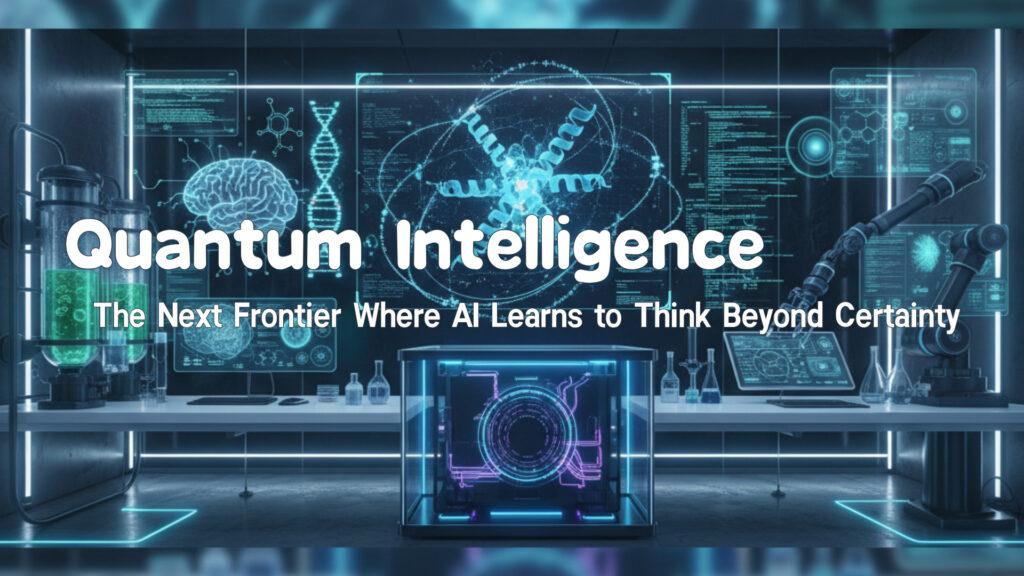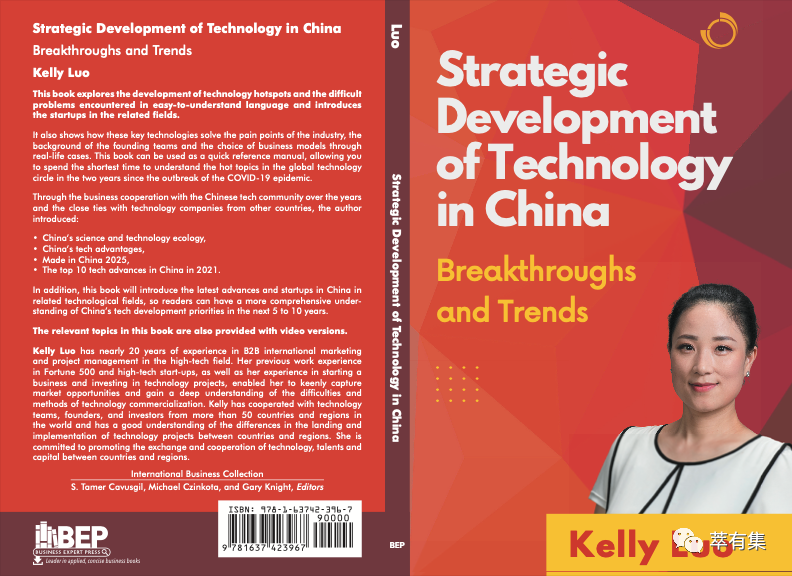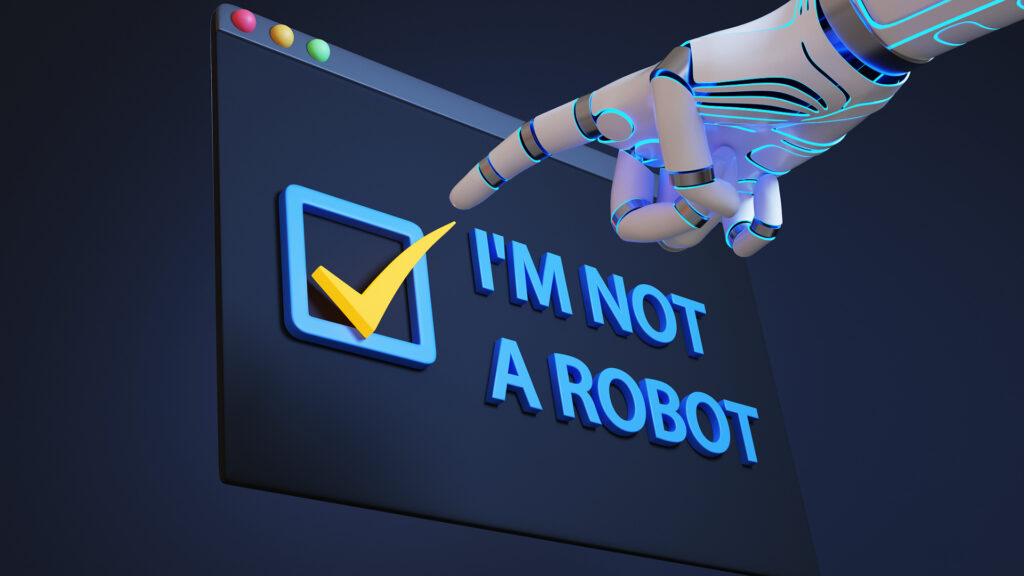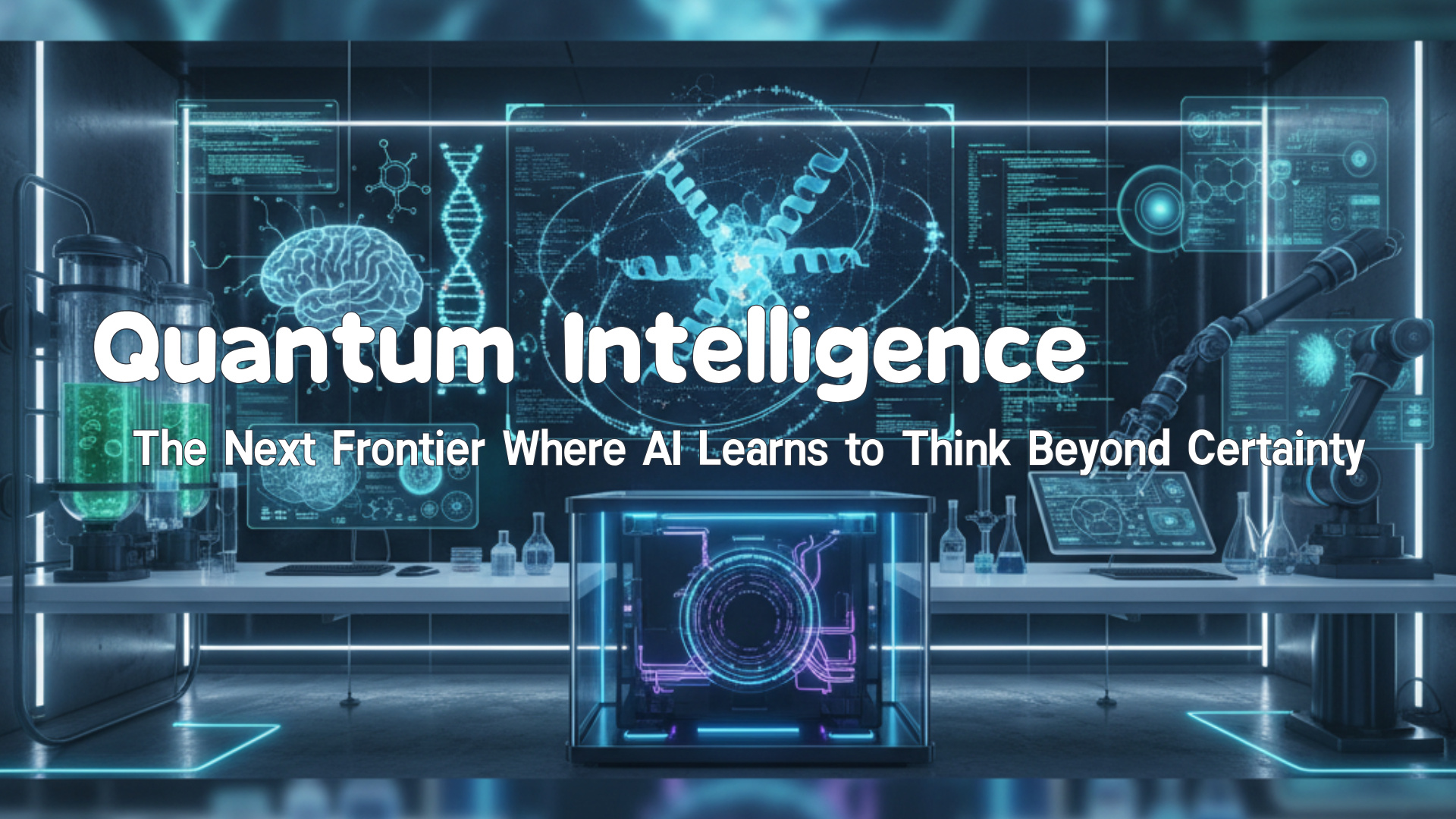
I. Opening: The Next Wave After AI
While Artificial Intelligence has defined the last decade, it remains constrained by classical computation — unable to fully capture the complex probability spaces that govern natural phenomena, such as molecular quantum behaviour.

Quantum systems, by contrast, compute through superposition and entanglement — the very mathematics of uncertainty.
When AI merges with quantum algorithms, the outcome is more than faster processing — it marks the dawn of a new paradigm for reasoning, creativity, and discovery.
II. Case — Insilico Medicine: Quantum + AI, Redefining Drug Discovery
Drug development is notoriously slow and costly — often taking over 10 years and costing around $2 billion per approved drug, with high failure rates due to the limitations of classical simulation.

Quantum computing aims to change that.
According to McKinsey, by 2035, quantum applications in life sciences could create up to $2 trillion in value, driven by advances in molecular simulation and protein folding.
In my book Strategic Development of Technology in China, I introduced Insilico Medicine, a pioneer in AI-driven drug discovery and among the first to explore integrating quantum computing with generative AI.

Its Variational Quantum Eigensolver (VQE) — a leading hybrid quantum-classical algorithm — has demonstrated improved molecular energy estimation accuracy, potentially enhancing drug target modeling.
By 2025, Insilico used a quantum-enhanced generative model to design novel molecules targeting KRAS mutations, one of the toughest challenges in oncology, achieving verified biological activity in early testing.
By combining quantum’s computational power with AI’s predictive intelligence, Insilico exemplifies how the two technologies can create a powerful synergy — accelerating discovery and redefining what’s possible in drug development.
III. Turing Test 2.0 — From Industrial Tools to Cognitive Engines
McKinsey’s long-term outlook (2040+) envisions quantum computing not merely as a faster processor, but as a cognitive amplifier — enabling humanity to simulate aspects of reality once unreachable by classical computation.
The true test of intelligence may ultimately lie at the intersection of information theory and the laws of nature.

Redefining the Test of Intelligence
The Classic Turing Test
Evaluates whether a machine can mimic human conversation well enough to appear intelligent — rooted in a deterministic, logic-based framework.

The Quantum Turing Test (QTT)
Extends this idea to ask whether an artificial system can model and reason within a quantum world of uncertainty and indefinite causality — a challenge that touches the frontiers of quantum gravity and computational theory.
Though still theoretical, the QTT expands our understanding of what “intelligence” could mean in a universe that resists deterministic explanation.
The New Definition of Intelligence
This shift reframes intelligence itself —
from seeking absolute, predictable answers,
to building self-consistent, adaptive models capable of operating amid fundamental uncertainty.
IV. Conclusion: Embracing the “Superposition Mindset”
The story of quantum is the story of humanity learning to master uncertainty.
From Einstein’s doubt — “God does not play dice” — to Insilico Medicine accelerating drug discovery with quantum-inspired algorithms, science has transformed uncertainty into strategy.

For decision makers, the key is adopting a Superposition Mindset:
In an age of rapid technological change, the future isn’t binary — it’s entangled, with multiple possibilities unfolding at once.
To lead in the quantum-AI era, we must invest for the long term and cultivate the ability to think, decide, and build amid uncertainty — not despite it.

